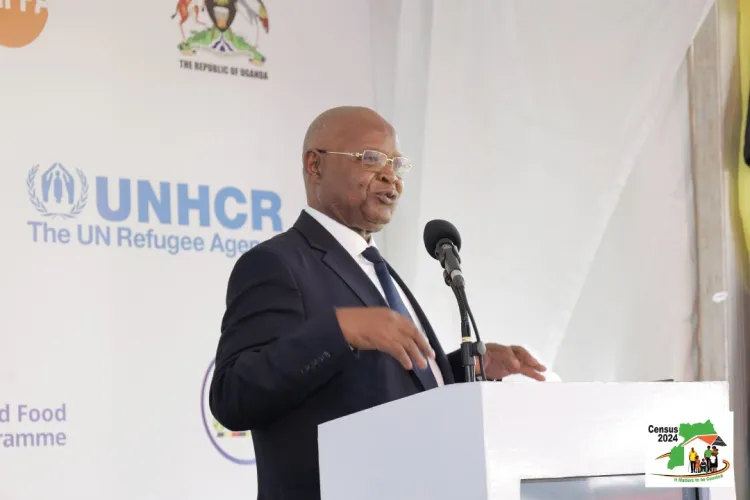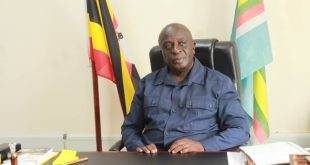Summary:
- The Uganda Bureau of Statistics (UBOS) has announced the preliminary 2024 National Census results, showing a population of 45,935,046, up from 34.6 million in 2014. This includes 780,061 refugees. Males account for 22.5 million, females for 23.4 million. Kampala remains the most populous city. The census faced challenges like hard-to-reach areas and refusals by some religious groups. President Museveni expressed surprise at the lower-than-expected total.
KAMPALA, (Examiner) — The Uganda Bureau of Statistics (UBOS) has unveiled the preliminary results of the 2024 National Census, revealing that Uganda’s population has surged to 45,935,046. This marks a significant increase from 34.6 million recorded in 2014, an addition of 11.3 million people over the past decade, including 780,061 refugees.
Dr. Chris Mukiza, the UBOS Executive Director, presented the findings at a press conference, highlighting key demographic trends. “The results show that the population comprises 22.5 million males and 23.4 million females,” Dr. Mukiza stated. Children aged 0-17 years constitute 50.5% of the population, while youths aged 18-30 years make up 22.7%. Older persons aged 60 and above account for 5.0%, and the working-age population (14-64 years) stands at 55.6%.
Urban Population Insights
Kampala remains Uganda’s most populous city, with a daily influx of 627,340 visitors and 1,875,834 residents. Other notable urban centers include Mbarara, with 63,318 visitors and 261,656 residents, and Gulu, hosting 91,165 visitors and 232,723 residents.
The average household size has decreased to 4.4 persons from 4.7 in the previous census, with a population growth rate of 2.9%. Females make up 51% of the total population.
Technological Advances in Census Taking
Dr. Mukiza emphasized the efficiency and accuracy of the digital census, conducted from May 10 to May 26, 2024. “We are releasing these preliminary census results exactly 31 days after the census closure. This was Uganda’s 11th census, 6th post-independence census, and the 1st digital census,” he noted. The cost of the census was $1.9 per person, compared to $2.1 in Kenya, with UBOS visiting 11 million households using a robust and precise methodology.
Challenges Faced
UBOS deployed a substantial workforce, including 135,230 field workers, 14,669 enumeration supervisors, and 4,715 sub-county/division supervisors, utilizing five types of questionnaires. Despite the meticulous planning, the census encountered challenges such as hard-to-reach areas, refusals by some religious groups, internal border conflicts, and inaccessible households.
“In Mayuge, we encountered a cult named ‘Njiri Nkaalu,’ whose members claimed they had already been counted by God. Police intervened, but some still refused to be counted,” Dr. Mukiza added.
Presidential Reaction
President Yoweri Museveni, who presided over the launch, expressed his astonishment at the findings. “They asked many questions. I took two hours responding with Maama [Janet] and my people. I thought the population was around 48 or 49 million, but I was surprised it is below 46 million,” he remarked.
The 2024 Census results offer a comprehensive snapshot of Uganda’s demographic landscape, underscoring significant growth and the challenges of census-taking in diverse regions.
The Black Examiner®.
We come to you.
Want to send us a story or have an opinion to share? Send an email to editorial@examiner.co.ug or Join Our WhatsApp CHANNEL
 The Black Examiner Uganda & East Africa's Premier Breaking News Hub. Catch the Latest & Breaking Stories in Uganda Today. Exclusive reports and cutting-edge opinions, delivered to your device first and faster than ever
The Black Examiner Uganda & East Africa's Premier Breaking News Hub. Catch the Latest & Breaking Stories in Uganda Today. Exclusive reports and cutting-edge opinions, delivered to your device first and faster than ever

 By
By 


